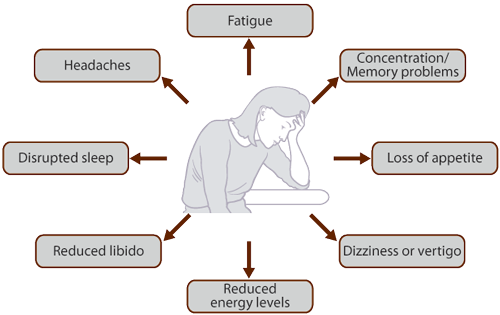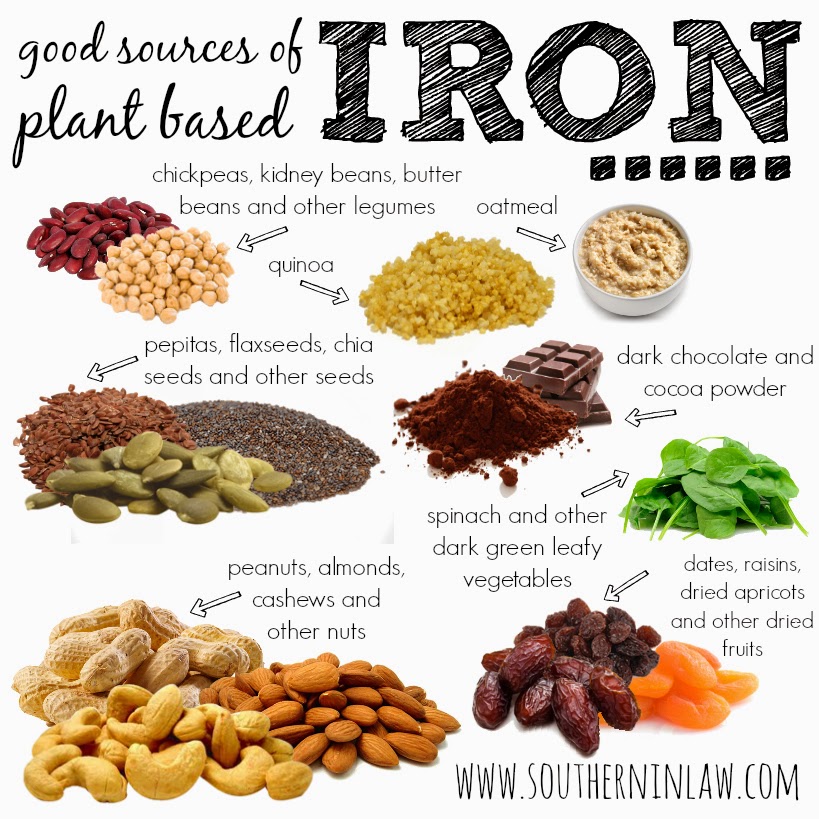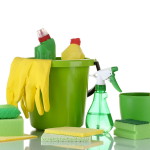Iron is an essential mineral needed by to our bodies to help transport oxygen to all parts of the body. It binds to a protein called hemoglobin in our red blood cells which is turn helps carry oxygen from the lungs to the rest of the body. Iron is also needed by the body for several other functions such as the production of hemoglobin and red blood cells and protein synthesis.
A deficiency occurs when the body is unable to absorb the iron or when the body requires more iron than is available. Women of child-bearing age and women that have recently given birth are susceptible to iron deficiency due to the loss of iron through menstruation or bleeding during and after the birthing process. Pregnant women can also experience an iron deficiency and are often required to take iron supplements in addition to their prenatal vitamins, to ensure both mother and baby have an adequate supply of iron.
Usually fatigue is the first noticeable symptom of low iron levels in the body. I attributed my tiredness and headaches to being a mother of two and so my iron-deficiency went undetected until recently during routine blood work. If you notice any of the following symptoms, it is best to follow-up with your doctor.
Symptoms of iron deficiency include:
- Extreme fatigue
- Head-aches
- Mood swings
- Hair loss
- Rapid heart beat
- Shortness of breath
- Muscle aches
- Difficulty concentrating
- Decreased immune function
- Irregular periods
- Circulation problems
Iron deficiency is notably one of the most common nutrient deficiencies. Conveniently it can be diagnosed through a simple blood test and managed through either modifying and or supplementing the diet with iron supplements. Although iron supplements can be bought over the counter, I would not suggest using them unless advised by a doctor as treatment.
If you eat red meats, fish, and eggs, you are probably getting enough iron through your food. The iron found in animal sources, called heme iron, is quickly absorbed by the body in comparison to the iron found in vegetable sources called non-heme iron. Due to this, vegetarians are usually required to consume twice as more iron-rich foods.
Foods that contain Heme-Iron:
- Oysters
- Chicken liver
- Beef liver
- Beef
- Clams
- Shrimp
- Egg
- Turkey
- Sardines
- Lamb
NOTE: Pregnant women should not consume liver too often as it contains Vitamin A, which in large quantities can be harmful to the unborn baby.
Foods that contain Non-Heme Iron:
- Dried Fruits (Prunes, raisins, apricots, peaches)
- Nuts (Cashews, almonds, walnuts, pistachios, pecans)
- Chickpeas
- Cowpeas
- Lentils
- Kidney beans, white beans, soya beans, navy beans, lima beans
- Iron-fortified cereals
- Blackstrap molasses
- Pumpkin Seeds
- Tofu
- Broccoli and other green and leafy vegetables
- Potato with skin
- Tomato paste
NOTE: To improve the absorption of Non-Heme Iron, pair it with a food rich in Vitamin C such as orange, red pepper or green pepper, and lemon.
If you have been diagnosed with iron-deficiency remember to take your iron supplements on an empty stomach to ensure maximum absorption. Do not take any other medication at the same time as the iron supplement. Do not take the supplements with coffee, tea, or wine. Iron-deficiency is very treatable with regular use of supplements and dietary changes. From personal experience, I know the iron supplements work well especially in conjunction with Vitamin B12 supplements if you are a vegetarian.
Feature Image: irondeficiency.com





Howdy I am so glad I found your blog page, I really found you by mistake, while I was searching on Bing
for something else, Regardless I am here now and would just like to say kudos for a remarkable post and a all round
entertaining blog (I also love the theme/design), I don’t have time to read through it all
at the minute but I have book-marked it and also included your RSS feeds, so when I have time I
will be back to read a great deal more, Please do keep up the excellent job.
Thank you for your feedback! I really appreciate it!